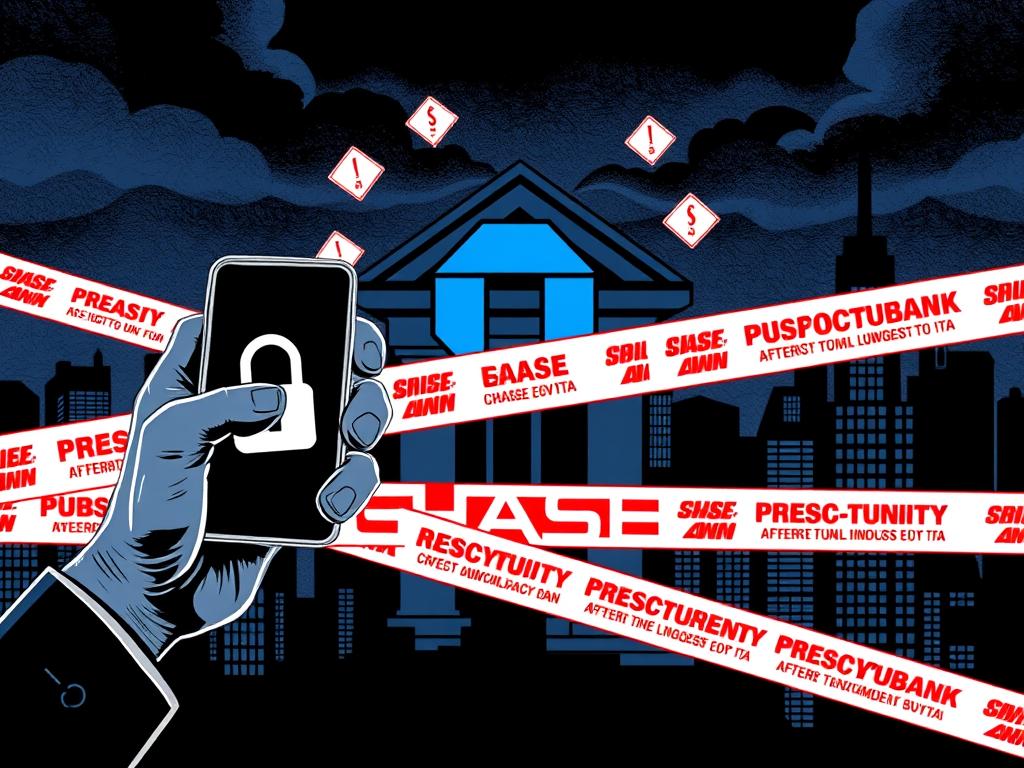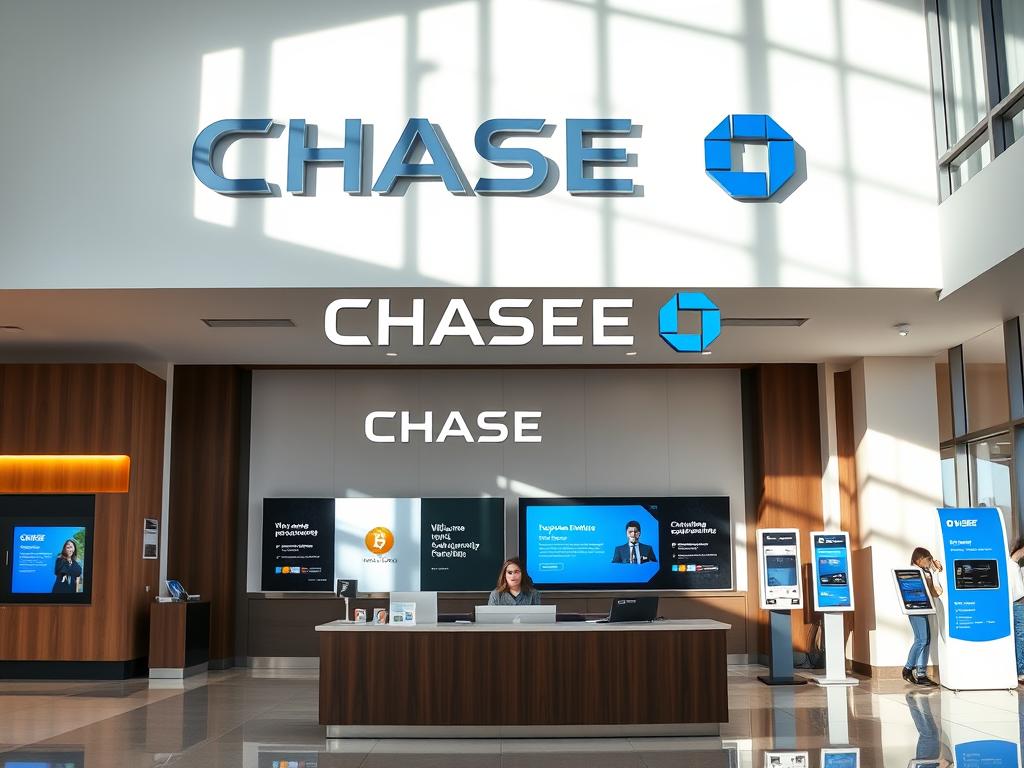Chase Bank’s approach to digital assets is complex. As America’s largest bank, its stance on cryptocurrencies affects millions of customers. Chase allows crypto purchases through regulated exchanges that follow FinCEN rules.
Customers can’t trade crypto directly with Chase. Instead, they must use third-party platforms for digital asset transactions. Recently, Chase has tightened restrictions on crypto-related payments.
An email to customers on 26 September 2023 outlined these changes. The bank frames this decision as a security measure against potential fraud. US crypto ownership has surged from 3% pre-2020 to 13% in 2023.
Despite growing interest, Chase remains cautious. They offer crypto funds only to wealthy clients meeting specific requirements. Understanding Chase’s policies is vital for customers interested in crypto.
While direct crypto trading isn’t available, alternatives exist. Customers can still engage with digital assets while banking with Chase. It’s crucial to stay informed about the bank’s evolving stance on cryptocurrencies.
Understanding Chase Bank’s Stance on Cryptocurrency
Chase Bank’s approach to cryptocurrency is complex and ever-changing. They balance innovation with strict regulatory compliance. Their stance reflects the evolving landscape of digital finance.
Current Cryptocurrency Policies
JPMorgan Chase remains cautious about cryptocurrencies. CEO Jamie Dimon has expressed scepticism in the past. However, the bank has made strategic moves in digital finance.
They launched a blockchain initiative in 2017. In 2019, they introduced JPM Coin. The bank developed the Onyx blockchain platform in 2020.
- Launched blockchain initiative in October 2017
- Introduced JPM Coin in February 2019
- Developed Onyx blockchain platform in 2020
Regional Cryptocurrency Support Variations
Chase’s crypto policies differ by region. In the US, customers can buy digital assets from approved exchanges. Conversely, Chase UK has implemented strict restrictions, banning cryptocurrency transactions due to increasing fraudulent activities.
| Region | Cryptocurrency Policy | Key Considerations |
|---|---|---|
| United States | Limited Crypto Support | Transactions via recognised exchanges |
| United Kingdom | Transaction Banned | High fraud risk protection |
Regulatory Compliance and Security Measures
Chase Bank focuses on regulatory compliance and customer protection. They carefully consider digital asset risks. This is especially true after events like the FTX exchange collapse.
Our commitment is to provide secure, innovative financial solutions while protecting our customers from potential digital asset risks.
Chase maintains a balanced approach to cryptocurrency. They prioritise security and follow regulations. The bank continues to adapt to the changing digital finance landscape.
Does Chase Offer Cryptocurrency Through Its Banking Services?

Chase Bank doesn’t offer direct cryptocurrency services through its traditional banking platform. The bank remains cautious about Chase cryptocurrency services. Customers must find other ways to invest in cryptocurrencies.
Chase has shown some openness to crypto. In August 2021, it began offering crypto funds access for specific wealth management clients. However, this service has strict financial requirements.
- Minimum annual household income of £250,000
- Combined Chase deposit balance of £500,000 or more
Chase allows customers to use their accounts for crypto purchases on regulated exchanges. However, they don’t support direct cryptocurrency trading through their mobile app or online banking.
Customers keen on cryptocurrency investments have several options. They can transfer funds to FinCEN-compliant exchanges or use approved third-party platforms like eToro.
Chase’s approach balances caution with recognition of digital assets’ growing importance. While not offering direct services, they acknowledge cryptocurrencies’ role in modern finance.
Alternative Methods for Buying Crypto with Chase Accounts
Chase Bank customers face challenges when buying cryptocurrencies. The bank doesn’t offer direct crypto trading. However, there are other ways to purchase digital assets using Chase accounts.
Crypto enthusiasts have various options for using Chase accounts on exchanges. It’s crucial to understand payment options and account linking processes. Navigating the financial ecosystem requires careful consideration.
Exploring Third-Party Cryptocurrency Exchanges
Chase customers can use reputable third-party platforms to buy cryptocurrencies. Here are some key exchanges with good connection features:
- eToro: Supports deposits via bank transfer
- Coinbase: Offers 50+ cryptocurrencies
- Binance: Provides 500+ cryptocurrency options
Linking Chase Bank Accounts to Crypto Platforms
To connect your Chase account to crypto platforms, follow these steps:
- Select a regulated cryptocurrency exchange
- Verify your bank account details
- Complete security authentication processes
- Initiate fund transfers
Payment Methods and Transfer Options
Chase Bank customers can use different transfer methods for crypto investments:
- ACH Transfers: Usually free, taking 3-5 business days
- Wire Transfers: Faster but may have higher fees
- Debit Card Deposits: Some exchanges may limit these
Investors should always verify current exchange policies and potential transaction limitations before proceeding.
Transaction times vary from minutes to days, depending on the platform and method. Always prioritise security when choosing an exchange. Use only regulated platforms recognised by financial authorities.
Limitations and Restrictions on Crypto Transactions

Chase Bank has set strict crypto limitations to shield customers from financial risks. These restrictions show a careful approach to cryptocurrency investments. They aim to keep customers safe in the unpredictable digital money world.
The main limits on cryptocurrency transactions are:
- Prohibition of direct cryptocurrency purchases using debit cards
- Restrictions on bank transfers to crypto exchanges
- Enhanced monitoring of crypto-related transactions
Recent stats highlight why these limits exist. U.K. consumer losses to crypto fraud increased by over 40% last year, surpassing £300 million. This sharp rise in fraud has led Chase to put strong safety measures in place.
“Our primary goal is to safeguard our customers from potential financial vulnerabilities,” says a Chase Bank representative.
Chase’s approach matches wider industry trends. Other banks are also setting transaction limits. They aim to lower risks linked to cryptocurrency investments.
| Bank | Crypto Transaction Approach |
|---|---|
| Chase | Blocks crypto purchases, limits transfers |
| NatWest | Implements daily and monthly transfer limits |
| Santander | Blocked real-time payments to crypto exchanges |
These Chase crypto limits may seem strict. However, they show a proactive plan to protect customers. The bank aims to shield its users from possible financial dangers in crypto transactions.
Benefits and Risks of Using Chase for Crypto Investment
Chase Bank’s digital ecosystem offers a unique path into digital assets. With over 60 million customers, JPMorgan Chase could speed up crypto adoption. Their innovative financial services provide potential benefits for cryptocurrency investors.
The cryptocurrency market carries significant investment risks. Bitcoin’s recent price swings highlight the need for cautious strategies. Chase’s advanced fraud protection and transaction monitoring can help reduce some digital currency investment risks.
Understanding transactions is key for smart decision-making. Crypto ETFs are seeing big inflows, nearing $60 billion in total assets. However, investors must remember these investments are speculative.
Chase’s programmable payment tech and blockchain-inspired systems offer more transaction transparency. These features may help with risk management in cryptocurrency investments.
Savvy investors should see cryptocurrency as part of a diverse portfolio. It’s wise to spread funds between digital assets and traditional investments. This balanced approach can help navigate the complex crypto landscape.
Chase’s tech infrastructure can be a useful tool for crypto investors. By using it wisely, you might manage your digital investments more effectively.
FAQ
Can I buy cryptocurrencies directly through Chase Bank?
Chase Bank doesn’t offer direct cryptocurrency purchases. However, you can use your Chase account to buy cryptocurrencies through third-party exchanges. This opens up exciting opportunities in the digital asset marketplace.
Are there any restrictions on crypto transactions with Chase?
Chase has set limits on cryptocurrency transactions to protect customers. These may include caps on transaction amounts and additional verification processes. There might also be temporary blocks on certain crypto-related purchases.
How can I link my Chase account to a cryptocurrency exchange?
You can link your Chase account to crypto exchanges by providing your bank details. Popular platforms like Coinbase, Binance, and Kraken typically support transfers from Chase accounts.
What payment methods can I use for crypto purchases with Chase?
Chase allows bank transfers, debit card transactions, and wire transfers for crypto purchases. Each method has different processing times and fees. It’s important to compare options carefully.
Are there differences in Chase’s crypto policies between the US and UK?
Yes, Chase’s cryptocurrency policies can vary between regions due to different regulations. The US and UK branches may have distinct approaches to digital asset transactions.
What security measures does Chase implement for crypto-related transactions?
Chase uses robust security protocols for crypto transactions. These include advanced fraud detection systems and multi-factor authentication. Real-time transaction monitoring is also in place to protect customers.
What are the potential risks of using Chase for crypto investments?
Crypto investments with Chase carry risks like market volatility and potential account limitations. It’s crucial to comply with bank policies. Approach crypto investments with a well-informed and strategic mindset.
Can Chase block my crypto-related transactions?
Chase can block or delay transactions they deem suspicious or high-risk. This is part of their commitment to protecting customers from potential fraud.
Are there transaction fees associated with crypto purchases using Chase?
Fees vary depending on the payment method and cryptocurrency exchange you use. Chase may not charge crypto-specific fees. However, you might face bank transfer or exchange platform costs.
How can I stay compliant with Chase’s cryptocurrency policies?
Use reputable cryptocurrency exchanges and keep clear transaction records. Ensure your account information is current. Stay informed about Chase’s latest policies on digital asset transactions.














